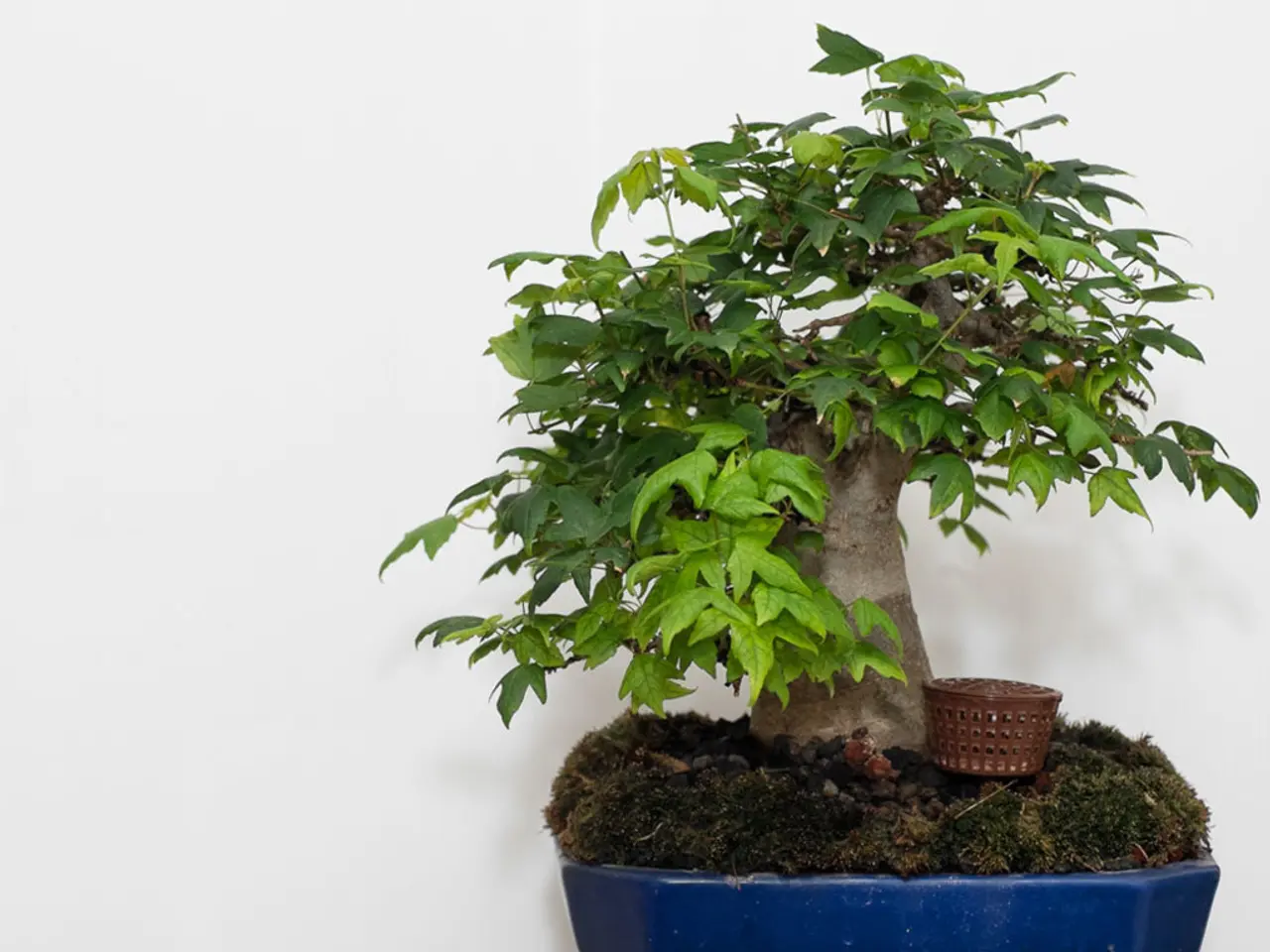Sustainable Strategies for Bonsai Maintenance: Embracing Earth-Friendly Decisions
In the realm of horticulture, bonsai care has evolved to become a harmonious dance between nature and nurture, a testament to environmental stewardship. This eco-friendly approach to bonsai cultivation aims to maintain a balance with nature, promoting resource efficiency and reducing environmental impact.
During extreme weather conditions, it's crucial to bring bonsai trees indoors to protect them from harm. However, in normal conditions, choosing suitable species and low-water plants is key. Opt for bonsai species naturally adapted to your climate and those requiring minimal water, such as Juniper, Chinese Elm, Ficus, or Serissa, to reduce overall water consumption.
Embracing eco-friendly practices extends to the materials used. Opt for organic soil mixes instead of synthetic ones, and consider using recycled or repurposed pots to minimize waste and chemical use. When it comes to watering, keep the soil slightly moist without overwatering. Efficient watering techniques, like the 'water-drop' method, can help conserve resources.
When it comes to pruning, frequency depends on the species, growth rate, and desired shape. A general rule is to prune every 4-6 weeks during the growing season. Practice careful pruning to avoid unnecessary removal of growth that the tree needs for energy, thus maintaining tree vigor sustainably.
Bonsai trees can live for decades or even centuries, making long-term care essential. Maintaining them well reduces the need for frequent replacement, embodying sustainability through longevity and generational care.
Adopting sustainable Bonsai maintenance also involves understanding a tree's unique needs to promote healthy growth with minimal environmental impact. Incorporating natural fertilizers like compost tea or worm castings enriches the soil and reduces reliance on synthetic chemicals.
Approaching bonsai care as a meditative, patient process fosters a connection with nature, encouraging quality care rather than rapid or excessive intervention. This mindful approach aligns perfectly with the principles of slow gardening.
Community sharing and education are also vital. Hosting workshops, tea ceremonies, or sharing bonsai trees promotes appreciation of sustainable horticulture and spreads eco-friendly practices.
By embracing these practices, bonsai cultivation becomes a testament to eco-friendly principles, emphasizing resource efficiency, organic care, and enduring stewardship, making bonsai a mindful, sustainable hobby.
In the realm of lifestyle and home-and-garden, bonsai care embodies sustainable horticulture by promoting resource efficiency and reducing water consumption through selective species choice and efficient watering techniques. The use of organic soil mixes and natural fertilizers further support eco-friendly principles, highlighting the harmonious balance between science, environmental-science, and nature.




